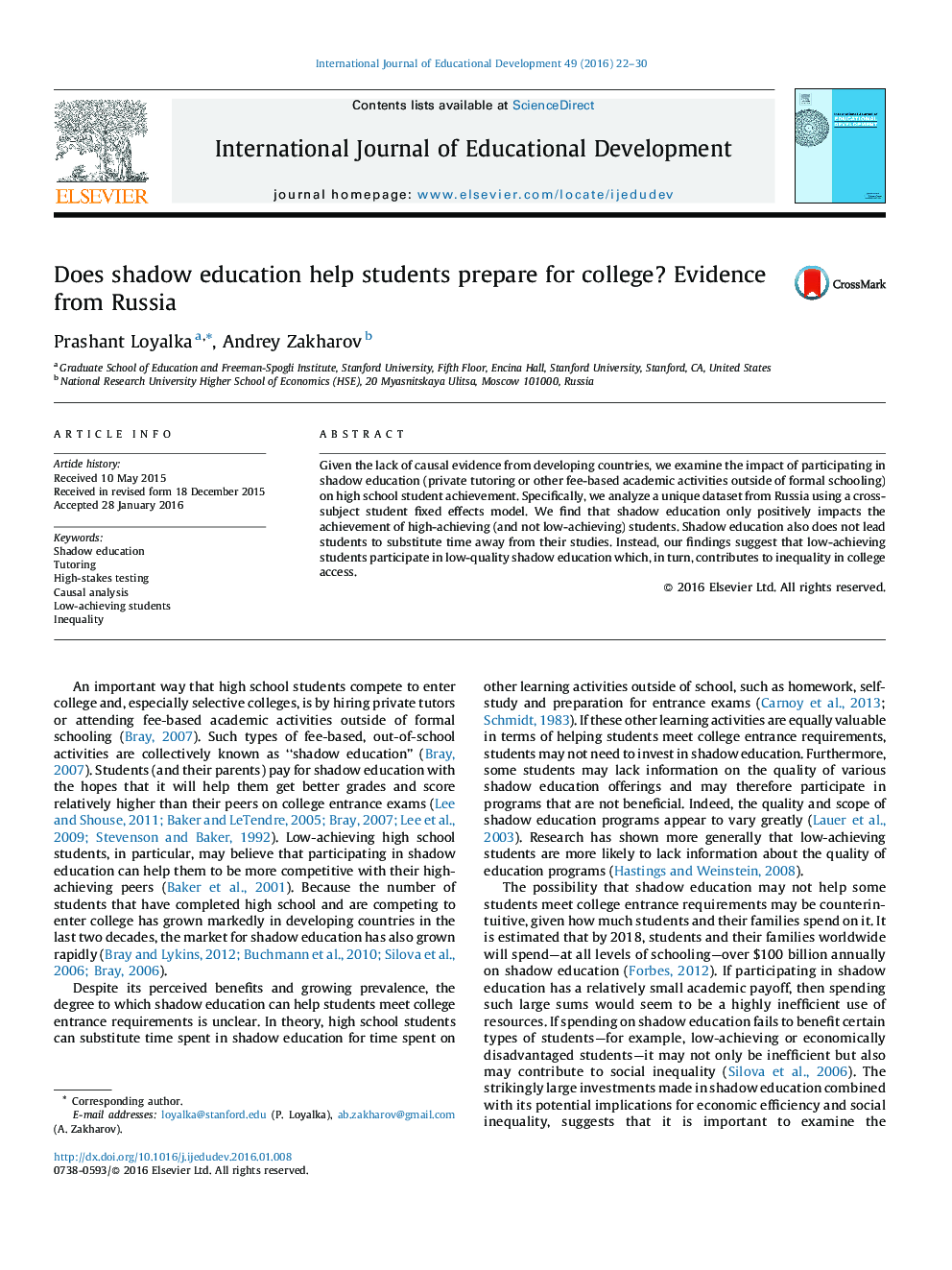| Article ID | Journal | Published Year | Pages | File Type |
|---|---|---|---|---|
| 6841197 | International Journal of Educational Development | 2016 | 9 Pages |
Abstract
Given the lack of causal evidence from developing countries, we examine the impact of participating in shadow education (private tutoring or other fee-based academic activities outside of formal schooling) on high school student achievement. Specifically, we analyze a unique dataset from Russia using a cross-subject student fixed effects model. We find that shadow education only positively impacts the achievement of high-achieving (and not low-achieving) students. Shadow education also does not lead students to substitute time away from their studies. Instead, our findings suggest that low-achieving students participate in low-quality shadow education which, in turn, contributes to inequality in college access.
Related Topics
Social Sciences and Humanities
Social Sciences
Development
Authors
Prashant Loyalka, Andrey Zakharov,
